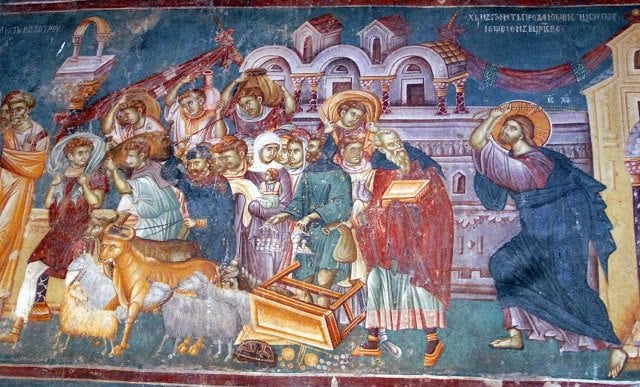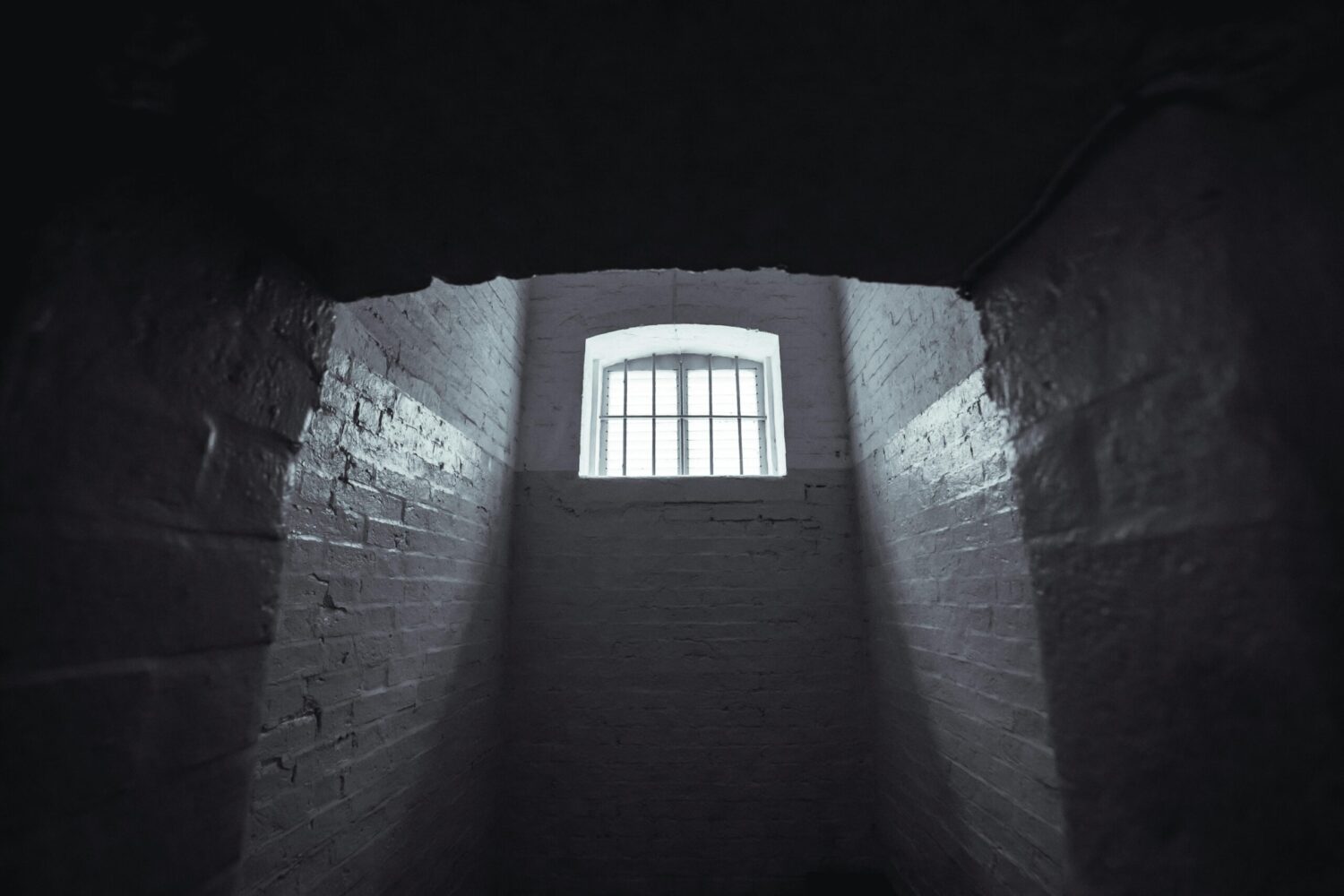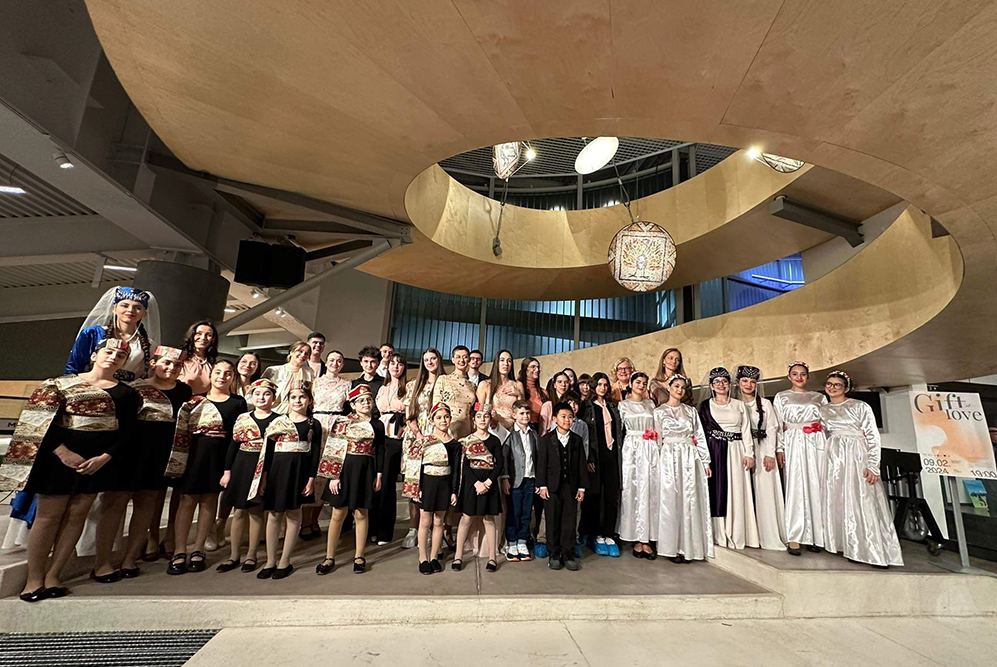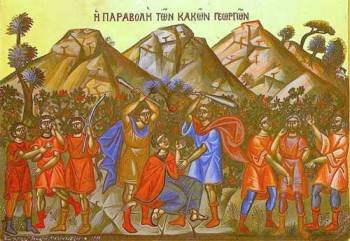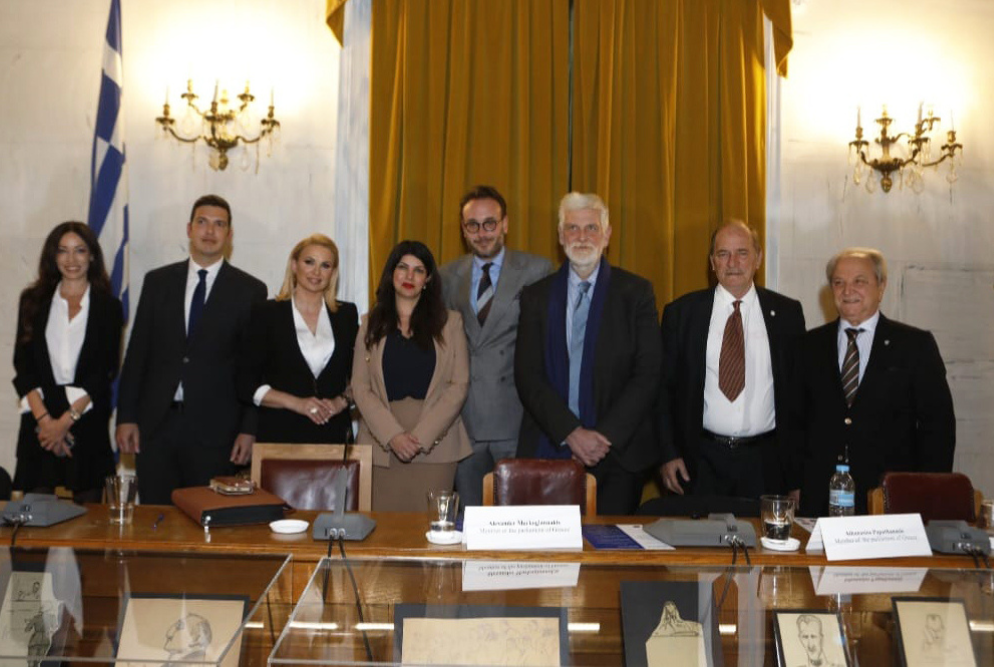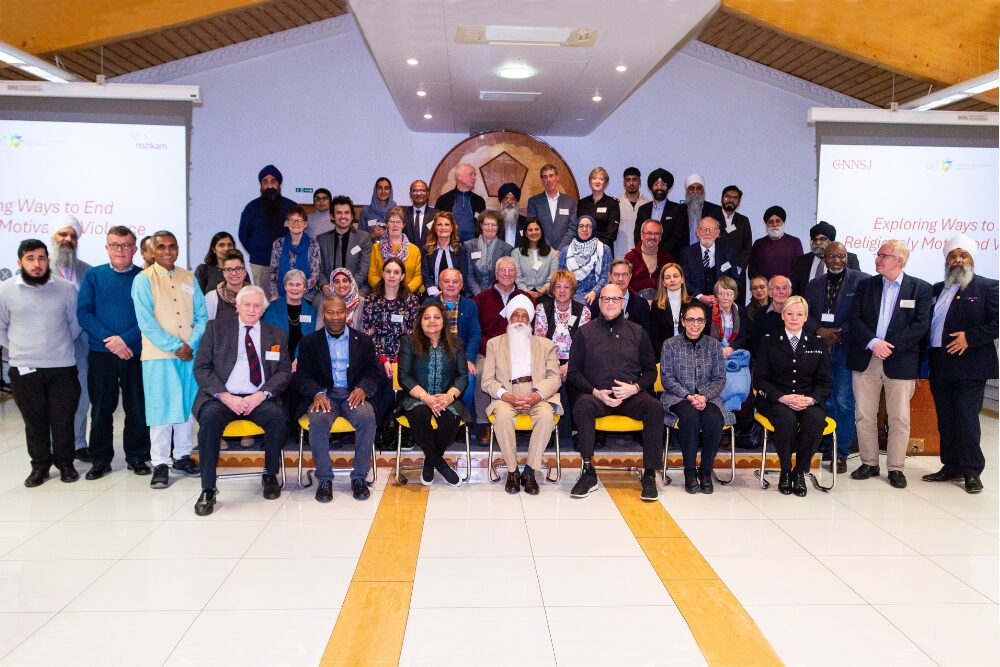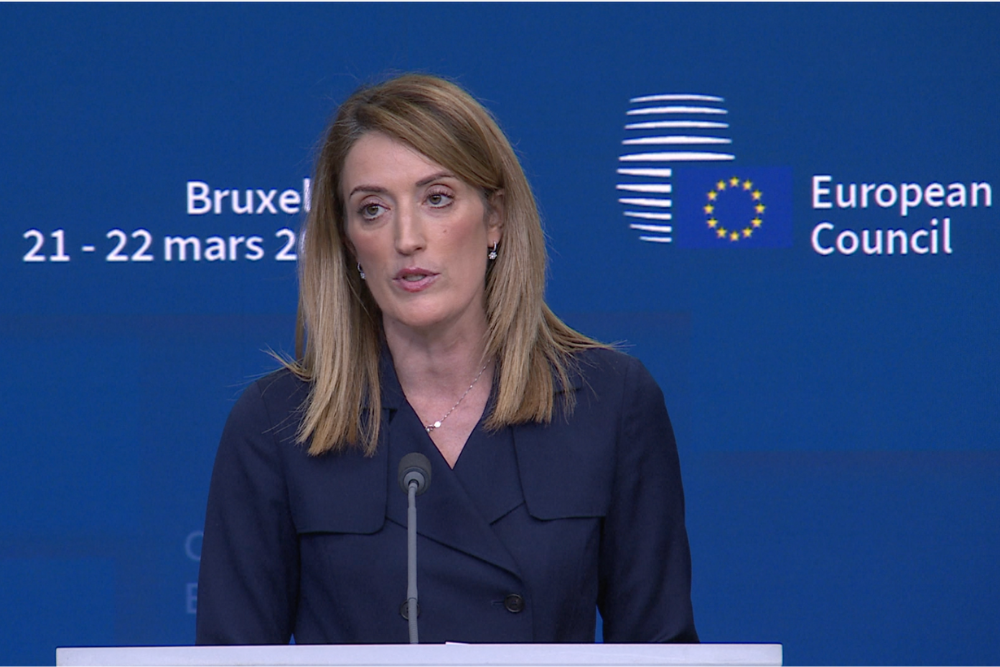By prof. A.P. Lopukhin
Chapter 19. 1 – 10. Zacchaeus the publican. 11 – 27. The parable of the mines. 28 – 48. Entry into Jerusalem and cleansing of the temple.
Luke 19:1. Then Jesus entered Jericho and was passing through it.
Luke 19:2. And behold, there was a man named Zacchaeus, who was a chief tax collector and a rich man,
The story of Zacchaeus the tax collector is a feature of the Gospel of Luke and is not described in the other evangelists. When the Lord, on his way to Jerusalem, passed through Jericho (for Jericho, see the comments on Matt. 20:29), the chief of the local tax collectors (in Jericho they received a lot of duties from the production and export of balsam and therefore there were several tax collectors), a rich a man named Zacchaeus (from Hebrew – pure), obviously a Jew, tried to see Jesus among those who were passing by. “Who is He?”, i.e. which of the passers-by was Jesus. But he did not succeed because he was small in stature.
Luke 19:3. he wanted to see Jesus, who He was, but he could not from the people, because he was small in stature;
Luke 19:4. and running forward, he climbed a fig tree to see Him, for He was about to pass by.
“running forward”, i.e. to this street which Christ had not yet passed, but would pass (according to the best reading: εἰς ἔμπροσθεν, and according to the Textus receptus – simply ἔμπροσθεν).
“climbed a fig tree” – the tree was obviously quite tall.
“from there”. The Greek text has the word δί ἐκείνης, but the preposition διά is superfluous here, it is not found in the best codices.
Luke 19:5. Jesus, coming to that place, looked up and saw him and said to him: Zacchaeus, come down quickly, for today I must be at your house.
“Zacchaeus”. It is not known whether the Lord knew Zacchaeus before this. It is possible that he heard the tax collector’s name from those around him who knew Zacchaeus and called him by name when they saw him in this strange position on the tree.
“today I have to be…”. The Lord points out to Zacchaeus the special importance for him of this day: Christ, according to the definition from above (cf. v. 10), must stay with Zacchaeus for the night (compare the expression μεῖναι – “to be” with John 1:39).
Luke 19:6. And he quickly came down and received Him with joy.
When Christ drew near, Zacchaeus indeed saw Him, and rejoiced at it; but we can imagine the joy of his heart when the great prophet, the acknowledged Messiah of His people, stopped under the tree, looked up, and, calling him by name, told him to come down, for he intended to be at his house. Zacchaeus would not only see Him, but also receive Him into his home, dine with Him and offer Him a night in his home – the despised publican would have the glorious Messiah as his guest. With joy, Zacchaeus hurried down from the tree and welcomed the tall guest into his home.
Luke 19:7. And all, when they saw this, grumbled and said: you stopped at the wrong person.
“all” is a hyperbolic expression. It refers to the Jews who accompanied Christ to the house of Zacchaeus and saw Zacchaeus meet the Lord at the entrance.
“stopped by” – more precisely: came in to stop here (εἰσῆλθε καταλῦσαι).
Luke 19:8. And Zacchaeus stood and said to the Lord: behold, half of my possessions, Lord, I give to the poor, and if I have taken anything unjustly from anyone, I will repay fourfold.
The conversation which Christ had with Zacchaeus when he came to him must have made a strong impression on the publican’s soul. By promising to pay the poor and those offended by him, he thereby expresses the consciousness of his unworthiness before such a great happiness with which he is now honored – the Messiah Himself has come to him.
“took unjustly” (ἐσυκοφάντησα), i.e. if I have harmed someone materially through my reports. Indeed, it is possible that Zacchaeus, as head of the tax collectors, played a major role in fining merchants who did not pay the legal tax on goods.
“quadruple”. He considered his act to be theft, and as theft according to the Mosaic law it was lawful to pay four times or even five times the value of the stolen goods (Ex. 22:1).
Luke 19:9. Then Jesus said of him: today salvation has come to this house, because this one is also a son of Abraham,
“said about him” – in relation to him, to Zacchaeus (πρός αὐτόν), addressing both His disciples and the guests who were in the house (and not, as in the Russian translation, “said to him”).
“of this home”, i.e. for the whole family of Zacchaeus.
“son of Abraham,” i.e. in spite of his profession, despised by all the Jews, and Zacchaeus had some theocratic right to salvation through the Messiah. This is not about his moral dignity, but the next verse confirms the idea that Zacchaeus really belonged to the people vainly called “perished.”
Luke 19:10. for the Son of Man came to seek and to save the perishing.
Here the Lord confirms the truth of what he says in verse 9. Indeed, salvation has come to the family of Zacchaeus, because the Messiah has come to seek and save those who are subject to eternal destruction (cf. Matt. 18:11).
Luke 19:11. And when they were listening to this, he added a parable, – because He was near Jerusalem, and they thought that at that hour the kingdom of God would be revealed, –
The parable of the mines is similar to the parable of the talents given by the evangelist Matthew (cf. the interpretation of Matt. 25:14-30).
Evangelist Luke points to the fact that the Lord’s announcement of the salvation of Zacchaeus’ house (verse 9) was heard by Christ’s disciples and probably by Zacchaeus’ guests, who understood this to mean that Christ would soon open God’s kingdom for all (the Lord was only 150 stadia from Jerusalem). It is clear that the kingdom they all expected was external, political. To dispel this expectation, the Lord tells the present parable.
Luke 19:12. and said: a certain noble man was going to a distant country, to get a kingdom for himself and to return;
It is very possible that when the Lord spoke of a man who endeavored to obtain royal dignity for himself, He meant the Jewish king Archelaus, who, by traveling to Rome, succeeded in establishing himself as king in spite of the protests of his subjects (Josephus, “Jewish Antiquities”, XVII, 11, 1). (Josephus, “Jewish Antiquities”, XVII, 11, 1, 1.) So also Christ, before receiving the glorious kingdom, will have to go to a “far country” – to heaven, to His Father, and then to appeared on earth in His glory. However, there is no need to make such a comparison, because the main idea in the parable is not this, but about the condemnation of the wicked servants (verses 26-27).
Luke 19:13. and having called ten of his servants, he gave them ten minas and said to them: trade until he returns.
The man called ten of his (ἑαυτοῦ) slaves, from whom he could expect that they would look after his interests (cf. Matt. 25:14).
“mini”. The Jewish mina was equal to one hundred shekels, i.e. 80 rubles (1.6 kg. silver). The Attic mine was equal to one hundred drachmas—if it was a silver mine—that is. at 20 (approx. 400 grams of silver). However, the gold mine was equal to 1250 rubles. In the Gospel of Matthew, the calculations are larger – talents are used – but there the man gives away all his possessions, which is not said here of the one who went to seek a kingdom for himself.
“trade”, i.e. use them to trade.
By “servants”, of course, Christ’s disciples should be understood, and by “mins” – the various gifts that they received from God.
Luke 19:14. But his citizens hated him, and sent messengers after him, saying: We do not want him to reign over us.
By the “citizens” who did not want the aforementioned man to be their king, we must understand Christ’s fellow citizens, the unbelieving Jews.
Luke 19:15. And when he returned, after he had received the kingdom, he bade them call those servants to whom he had given the money, that he might know who had gained what.
(See Matt. 25:19).
“who gained what” – it is more correct to say “who undertook what”.
Luke 19:16. The first came and said: master, your mine has earned ten mines.
Here we find that one benefited many and multiplied his gift tenfold (blessed Theophylact).
Luke 19:17. And he said to him: good, good servant; because you have been faithful in too little, be ruler over ten cities.
(see Matt. 25:20-21).
Luke 19:18. The second came and said: master, your mina brought five mina.
Luke 19:19. And he said to that: you too shall be over five cities.
Luke 19:20. Another came and said: master, here is your mine, which I kept in a cloth,
The third servant was completely useless and spent his working time in idleness.
Let’s see what he says, “Sir, here is your mine,” take it. “I kept her wrapped in a towel.” A towel was placed on the dead Lord’s head (John 20:7), and Lazarus’ face in the tomb was wrapped in a towel (John 11:44). Therefore, this careless person rightly says that he wrapped the gift in a cloth. For, having made it dead and inoperative, he made no use of it, nor profited by it (blessed Theophylact).
Luke 19:21. for I was afraid of you, for you are a cruel man: you take what you did not sow, and reap what you did not sow.
The servant thought that the zeal of the merchants alone, without the help of God, accomplished everything, and that He, as a cruel man, exacted what others had acquired without the least assistance. The parable presents such an excuse, wishing to show that such people can offer no reasonable excuse, and that whatever they say will be turned against them. And hear further: He said to him, “With your mouth I will judge you, you wicked servant!” (Evthymius Zygaben)
Luke 19:22. His master said: with your mouth I will judge you, cunning slave: you knew that I am a cruel man, I take what I did not sow, and reap what I did not sow;
Luke 19:23. then, why didn’t you put my money in the bank, so that when I come, I can get it with interest?
Luke 19:24. And he said to those present: take the mine from him and give it to the one who has ten mines.
Luke 19:25. (And they said to him: master, he has ten mines!)
Luke 19:26. For I say to you, to everyone who has, more will be given, and from him who does not have, even what he has will be taken away;
(see the interpretation of Matt. 25:22-29).
Luke 19:27. and those of mine enemies, who would not have me reign over them, bring hither, and cut them down before me.
Here the king looks away from the wicked servant and remembers his enemies spoken of in verse 14.
“cut down before me” is a figure denoting the condemnation of Christ’s enemies to eternal death.
In this way, the parable refers both to the fate of the Jews who did not believe in Christ, and – and this is its main purpose – to the future fate of Christ’s disciples. Each disciple is given a certain gift by which he is to serve the Church, and if he does not use this gift properly, he will be punished by exclusion from the kingdom of the Messiah, while the diligent executors of Christ’s will will receive the highest honors in it kingdom.
This parable has many uses: it points to Christ’s impending departure from the world; the hatred with which He was rejected; the duty of faithfulness in the use of all that is entrusted to those who believe in Him; the uncertainty of the time of His return; the assurance that at His return all will have to give a stern account; the condemnation of the lazy; the great reward for all who serve Him faithfully; and the final destruction of those who reject Him.
Luke 19:28. Having said this, He went on, going up to Jerusalem.
Here Evangelist Luke speaks of Christ’s entry into Jerusalem according to Evangelist Mark (Mark 11:1-10; cf. Matt. 21:1-16). But at the same time he makes some additions, and in some places also cuts.
The last decisive moment in the life of Christ has approached. The malice of His enemies increases and they seek ways to undermine His influence among the people and even kill Him.
“went on”. More precisely, “I go before (ἐπορεύετο ἔμπροσθεν) His disciples” (cf. Mark 10:32).
Luke 19:29. And when he drew near to Bethphage and Bethany, to the mount called Olivet, he sent two of his disciples
“to the mountain called Eleon” – more correctly “to the Mount of Olives” (ἐλαιῶν – olive grove; Josephus also uses the name “Mount of Olives” (“Josephus.” “Jewish Antiquities”, VII, 9, 2).
Luke 19:30. and said to them: go to the opposite village; when you enter it, you will find an ass tethered, which no man has ever ridden; untie it and bring it.
Luke 19:31. And if someone asks you: why do you untie him? tell him thus: it is necessary for the Lord.
Luke 19:32. The sent went and found as he had told them.
Luke 19:33. And when they were untying the donkey, its owners said to them: Why are you untying the donkey?
Luke 19:34. They answered: it is necessary for the Lord.
Luke 19:35. And they brought him to Jesus; and putting their clothes on the donkey, they put Jesus on it.
Luke 19:36. And when He passed by, they spread their clothes on the road.
Luke 19:37. And when he was about to pass over the Mount of Olives, the whole multitude of disciples, rejoicing, began to praise God with a loud voice for all the miracles which they had seen,
“when he was about to pass the Mount of Olives”. Where the descent from the mountain had been, Jerusalem was seen in all its glory. Hence the sudden outburst of ecstatic shouts of the people who accompany Christ as their king entering His capital is understandable.
“many disciples”. These are students in the broadest sense of the word.
“as they had seen”. It means earlier when they followed Christ.
Luke 19:38. saying: blessed is the King who comes in the name of the Lord! Peace in heaven and glory in the highest!
“blessed be the King”. The disciples call the Lord King only in Luke and John (John 12:13).
“Peace in heaven and glory in the highest.” With these words Luke replaces the exclamation “Hosanna in the highest” (in Matthew and Mark). He, so to speak, divides “hosanna” into two exclamations: “peace in heaven”, i.e. salvation in heaven, with God, Who will now dispense this salvation through the Messiah, and then “glory in the highest,” i.e. God will be glorified for this by the angels on high.
Luke 19:39. And some Pharisees from among the people said to Him: Teacher, rebuke Your disciples.
Luke 19:40. But He answered them and said: I tell you, if they keep silent, the stones will cry out.
This passage is found only in the Evangelist Luke. Some of the Pharisees, emerging from the crowd in which they were, turned to Christ with a proposal to forbid His disciples to shout in this way. The Lord replied that such an outburst of praise to God could not be stopped. In doing so, He used the proverb about stones, which is also found in the Talmud.
Luke 19:41. And when he came near and saw the city, he wept over it
“wept for him”. When He drew near to the city, He looked upon it and wept—wept bitterly for it, as the verb used shows us (ἔκλαυσεν ἐπ´ αὐτήν, not ἐδάκρυσεν, as at the tomb of Lazarus, John 11:35).
Luke 19:42. and said: if only you had known, at least in this day of yours, what serves for your peace! But now it is hidden from your eyes,
“if it were”. Speech is broken, as “happens to those who weep” (Evthymius Zigaben). “For the peace” or the salvation of Jerusalem had to serve, of course, faith in Christ as the promised Messiah (cf. Luke 14:32).
“and you” – like My disciples.
“in this thy day,” i.e. in this day which may be for you a day of salvation.
“now…” – in the present relationship this is impossible, since God has hidden this salvation from you (ἐκρύβη indicates God’s determination, cf. John 12:37ff.; Rom. 11:7ff.).
Luke 19:43. for days shall come upon thee, and thine enemies shall surround thee with trenches, and shall surround thee, and shall strait thee on the other side,
“days will come for you”. The Lord has just said that from the Jewish people is hidden that which serves for their salvation. Now He proves this by mentioning the punishment that surely awaits this people.
“they will surround you with trenches”. This was accomplished at the siege of Jerusalem by the Romans, when Titus, to prevent supplies from being brought into Jerusalem, surrounded it with a rampart or palisade, which was burnt by the besiegers, and afterwards replaced by a wall.
Luke 19:44. and they will destroy you and your children within you, and they will not leave a stone upon a stone in you, because you did not know the time when you were visited.
“they will ruin you”. More precisely, “they will level you with the ground” (ἐδαφιοῦσι).
“and your children in you”. The city in Scripture is often represented under the image of a mother (cf. Joel 2:23; Isa. 31:8), and therefore by children must be understood the inhabitants of the city.
“the time when he was visited,” i.e. a certain moment in time when God has shown special care for you, offering you to receive messianic salvation through Me (τόν καρδονν τῆς ἐπισκοπῆς – cf. 1 Pet. 2:12).
Luke 19:45. And when he entered the temple, he began to chase those who were selling and buying in it,
Evangelist Luke tells about the cleansing of the temple from unusual activity according to Mark (Mark 11:15 – 17) and partly according to Matthew (the interpretation of Matt. 21:12 – 13).
Christ did not begin his usual sermon until the Temple had been reduced to a state of propriety and silence. This work was certainly easier now that it had already been done once. When the ugly commercial bustle ceased, the temple again assumed its usual appearance. Suffering people came to Christ and He healed them. Meanwhile, the news of the new expulsion of the merchants from the Temple reached the Sanhedrin, and its members, after a little recovering from their embarrassment, came to the Temple to demand from the preacher an answer to the questions: “By what authority do you do this? And who gave you this power!” These questions were evidently intended to provoke him to some such statement, which, as had happened before, would give them grounds to accuse him of blasphemy and stone him to death. But this treachery fell upon their own heads (cf. Luke 20, the question of John’s baptism).
Luke 19:46. and he said to them: it is written: “My house is a house of prayer”, and you have made it a den of robbers.
Luke 19:47. And he taught every day in the temple. And the chief priests and the scribes and the elders of the people sought to kill Him,
“And he studied every day.” The Evangelist Luke notes the fact of Christ’s daily appearance in the temple as a teacher to make a transition to the subject of the next chapter. Evangelist Mark also mentions this “teaching” (Mark 11:17).
Luke 19:48. and they did not find what to do to Him, because all the people were attached to Him and listened to Him.
“He was attached to him and listened to him” (ἐξεκρέματο αὐτοῦ ἀκούων). The attention with which the people listened to Christ was an obstacle for the Saviour’s enemies in their designs against Him.
Source in Russian: Explanatory Bible, or Commentaries on all the books of the Holy Scriptures of the Old and New Testaments: In 7 volumes / Ed. prof. A.P. Lopukhin. – Ed. 4th. – Moscow: Dar, 2009. / T. 6: Four Gospels. – 1232 pp. / Gospel of Luke. 735-959 p.



